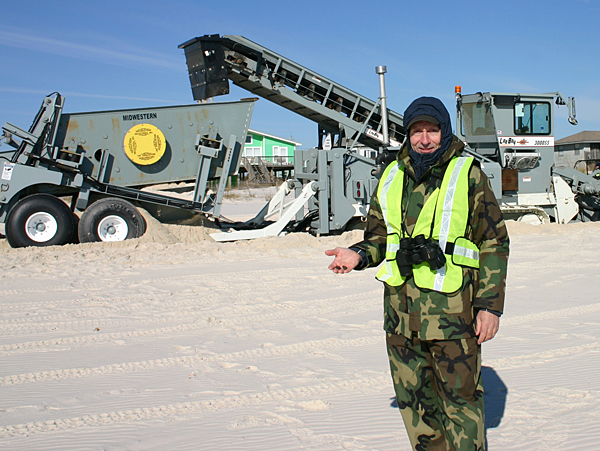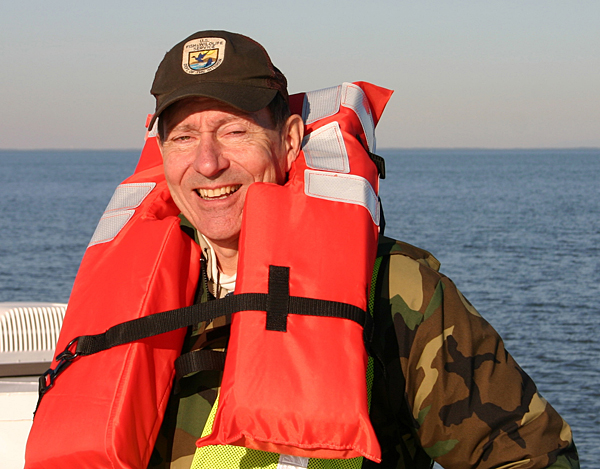


Gulf cleanup
CANR alumnus recounts work to restore coast in aftermath of oil spill
9:49 a.m., June 20, 2011--More than a year after the oil spill -- as he remembered standing on a soiled Alabama beach, a cold 15 mile per hour wind whipping his face and a 30 degree chill slicing through layers of clothing -- Lew Gorman, III, a University of Delaware College of Agriculture and Natural Resources alumnus, reflected on the reasons he went to help in the embattled Gulf of Mexico region.
“This is the largest man-made environmental disaster incident the U.S. has ever experienced to my knowledge, and as an environmentalist, conservationist, and working for a natural resource agency, anything that I could do to directly assist is what I wanted to do,” said Gorman, who received a master's degree from CANR in 1973.
People Stories
'Resilience Engineering'
Reviresco June run
Working for the U.S. Fish and Wildlife Service (USFWS), a federal government agency involved in helping clean up the Gulf oil spill disaster, Gorman arrived at the Alabama Operations Center on Jan. 3, 2010.
Gorman’s role was that of a Section 7 liaison, the "Section 7" referring to the numeric section of the Endangered Species Act requiring federal organizations to consult with the USFWS when there is an incident that affects endangered species. As a liaison, Gorman advised those involved in the cleanup operations concerning any actions that would negatively impact endangered species or their habitats, and instructed groups on how to best avoid such actions.
Gorman said that what he enjoyed out of his time in the Gulf was “learning more about coastal ecology and applying this knowledge in a direct and timely way” and “helping to improve operation processes that controlled cleanup operations in Alabama.”
For nearly three straight weeks, Gorman worked 11-12 hour days, learning all he could about coastal ecology, which he said helped him and his group “prevent further damage to the coastal beach and dunes as a result of cleanup actions." He said "the beach and its dunes serve as a feeding and nesting ground for shorebirds” some of which he explained are endangered, and some of which are at-risk of endangerment.
Gorman said he “worked with the planning staff to design procedures on how to clean areas of vegetated dunes that would allow tar ball removal with little to no dune damage.”
Gorman also said he “worked with terrific and dedicated people who cared about getting the job done properly, who worked long hours to get it right and to pass on the torch to those who followed to insure a seamless operation.” He said that the transitioning from one team to the next “was a critical element of this operation that I felt good about participating in.”
Although Gorman is very proud of the work that was done, and is still being done, to help repair the Gulf to its pre-oil spill state, he said that there are still many challenges facing the region. “There are many challenges from ecological to economic. Both are intertwined and have always been. This disaster shows the connection. The environment needs to be healthy to support viable economic activities.”
Article by Adam Thomas









